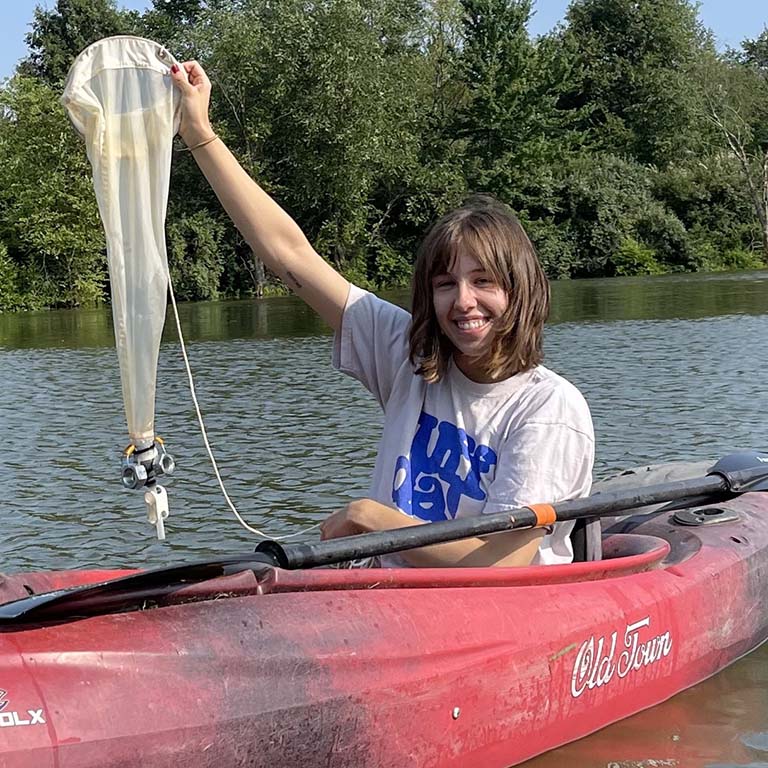Lauren Albert is a second-year Ph.D. student in the Evolution, Ecology, and Behavior Graduate Program. She is a member of Professor Spencer Hall’s lab.
Albert’s research questions are centered on advances in the community ecology of stage-structured interactions with disease dynamics. Stage-structure integrates competition for resources between and within life stages—linked through growth, development, reproduction, and mortality. From this framework, she focuses on the competitive asymmetries between stages that arise and how disease epidemics cause or affect these asymmetries. By doing this, Albert seeks to connect stage asymmetries with interesting population-level feedbacks that can influence the timing, size, and destructive power of epidemics. She addresses these individual and population-level questions using a planktonic host-fungal parasite system. The zooplankton host, Daphnia dentifera, becomes infected by spores of the fungal parasite Metschnikowia bicuspidata while feeding on algal resources. Virulence of spores on growth, fecundity, and survival likely causes or exacerbates stage asymmetries. For example, infection reduces adult size at first reproduction, affecting energy for reproduction and development. Further, Albert studies the various stage-structured interspecific interactions involving predators and algal resources of hosts, which can reveal additional consequences for asymmetries and disease. Her work tests predictions from mathematical models using mesocosm experiments and field surveys to ensure relevance to natural lake populations.
In addition to her research in the EEB Graduate Program, Albert works with a team of graduate students and researchers on the Modeling and Evidence Mapping Environment through the IU School of Education’s Learning Sciences program. This modeling interface helps elementary school students build models while making connections to scientific phenomena.







 The College of Arts
The College of Arts